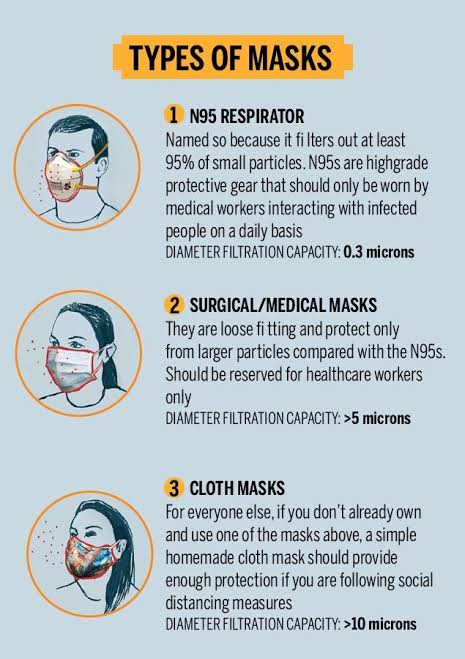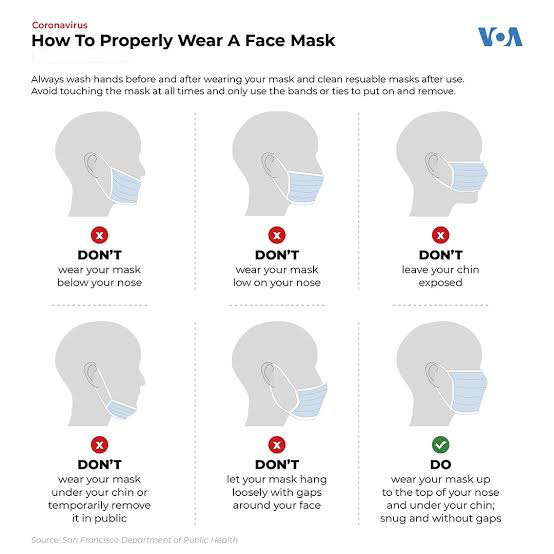As a result of the COVID-19 pandemic, the action by the some state Governors in Nigeria to make the wearing of face masks compulsory is absolutely right. Nigerians must, as a matter of necessity, wear a face mask to protect themselves and others since it is globally recognized and approved as a strategy for curbing the spread of the novel virus. The reality of COVID-19 is no more in doubt; everyone knows that a deadly invisible enemy is lurking around. For millions of people around the world, this pandemic is the greatest challenge they have ever faced in their lifetime. Experts say the use of face masks by the public, together with social distancing and hand washing will prevent the transmission of novel coronavirus and save lives.
Fortunately, the initial fear that there won’t be enough face masks to go round has been overcome with the ingenuity of Nigerians. Tailors are now making fashionable face masks that people can purchase at affordable prices. For even as low ₦100, depending on the location, one can get a locally made face mask. With this development, a lot of people really don’t have an excuse not to wear face masks in public places.

Different types of masks offer different levels of protection. The surgical grade N95 respirators offer the highest level of protection against the COVID-19 infection, followed by surgical grade masks. However, these masks contribute to landfill waste,are costly, in limited supply, and are uncomfortable to wear for long periods. The evidence on the protective value of single-use paper mask or reusable cloth coverings is not so clear, but they still suggest some sort of safety precaution.
The evidence on any mask use, outside of surgical masks, is still emerging; there appears to be some benefit, but the exact parameters of which masks are the best and the extent to which they protect the wearer or those around them are still being figured out. A tighter fitting around the face is probably better, but the U.S. Centers for Disease Control and Prevention (CDC) suggests any covering, including a bandana, is better than nothing.One U.S. study investigated which household materials best removed particles the typical size of viruses and bacteria, and it was concluded that good options include vacuum cleaner bags or multiple layers of material. Scarves and bandana material are less effective, but still capture a fraction of particles.
How do you put them on and take them off safely?
Before putting on a mask, clean your hands well with soap and water. Cover the mouth and nose with your mask and make sure there are no gaps between your face and the mask. Avoid touching the mask while it’s in use and, if you do, wash your hands. Replace the mask when it is damp.

To remove your mask, take it off using the elastic tags, without touching the front and discard immediately into a closed bin. If the mask is reusable, put it directly into the washing machine.
- Chude Okechukwu (CSC ’19)